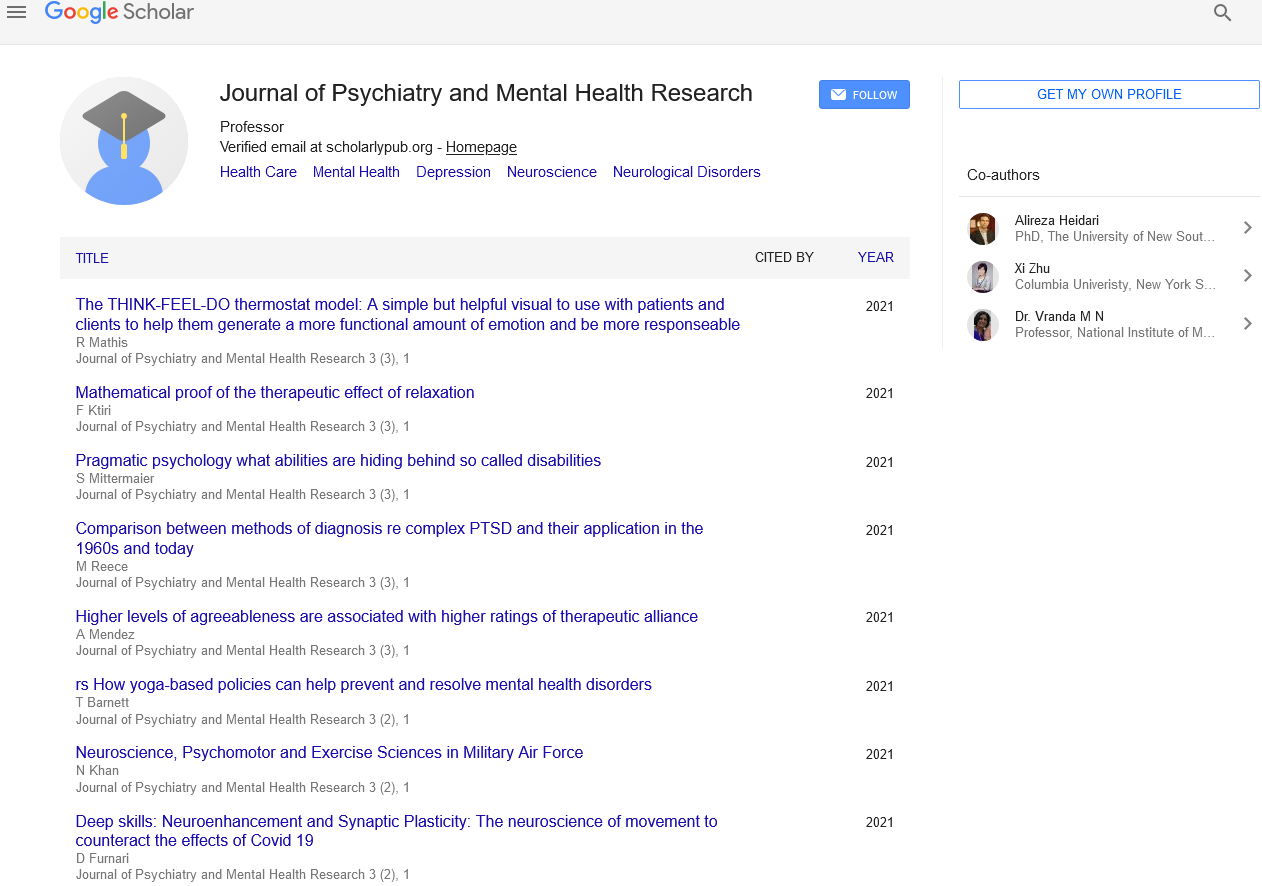
Sign up for email alert when new content gets added: Sign up
Selfie syndrome âÃâ¬Ãâ a modern addiction
Joint Event on 4th World Congress on Psychiatry & Mental health Nursing & 2nd Global Experts Meeting on Psychiatry and Mental Health
June 17-18, 2019 | Rome, Italy
Anamaria Ciubara, Liliana Luca and Alexandru Bogdan Ciubara
"Dunarea de Jos" University, Romania
Posters & Accepted Abstracts: J Psych and Mental Health Research
Abstract :
With the occurrence and development of social networks and gadget development, new manifestations occurred in the area of mental health. They do not have to be dealt with independently, as they are usually a form of manifestation (symptom) of regular mental disorders, classified by the world psychiatry associations. One of the newly described pathologies is “the selfie syndrome”. Back in March 2014, in Chicago, the American Psychiatry Association agreed that exaggeration in taking selfies is a mental disorder and was clinically diagnosed as “Selfitis”. Three clinical forms of this pathology were defined:
• Borderline selfitis (manifestation at the edge of normal): taking up to 3 selfies a day without uploading them on social networking sites;
• Acute selfitis (acute manifestation): taking up to 3 selfies a day and posting each of them online;
• Chronic selfitis (severe chronic manifestation): uncontrollable urge to take selfies every hour and posting them on social networking sites more than 6 times a day.
Moreover, California State University, following an extensive study, associates clearly the selfie phenomenon with a series of mental disorders such as: attention deficit, depression, obsessive compulsive disorder, narcissism (the clinical form), hypochondria, schizoaffective disorder, schizotypal disorder, body dysmorphic disorder, voyeurism and addiction.
The team of psychiatrist and clinical psychologists who did the research draws attention to the fact that the selfie phenomenon has the property of exacerbating the narcissistic behavior in people who suffer from this pathology and clinical manifestation of this disorder in people who suffer from an easy, subclinical form of narcissism. Going through the currently worldwide accepted definitions, the selfie syndrome must be interpreted at an individual level. This syndrome is mainly encountered in adolescents, which links it closely to the hormonal changes specific to the age and the acute need of defining personality at this age. Unfortunately, the social networking sites organize contests for the most beautiful, most dangerous or most original selfies. This only encourages youngsters to develop the selfie syndrome and expose themselves to dangers. We can find in national and international news, many articles about deadly accidents during selfie photo sessions: electrocutions on train carts or high-voltage power lines, accidental falls from high buildings, car accidents, etc.




